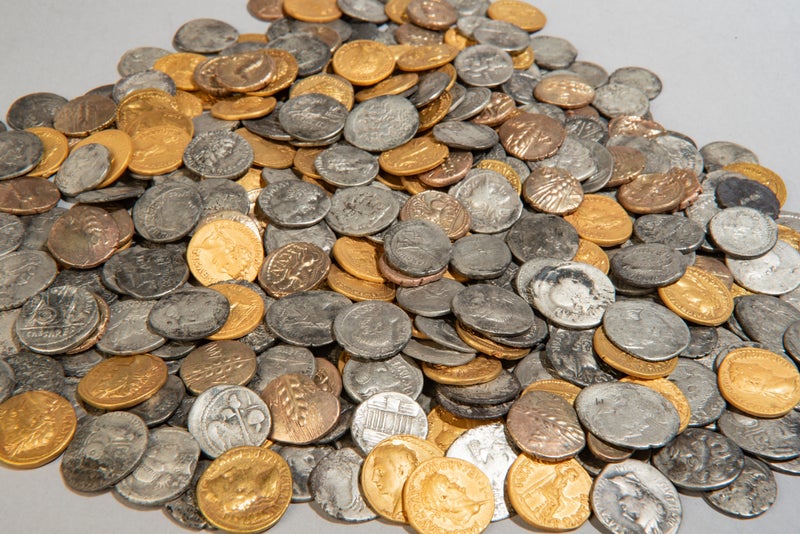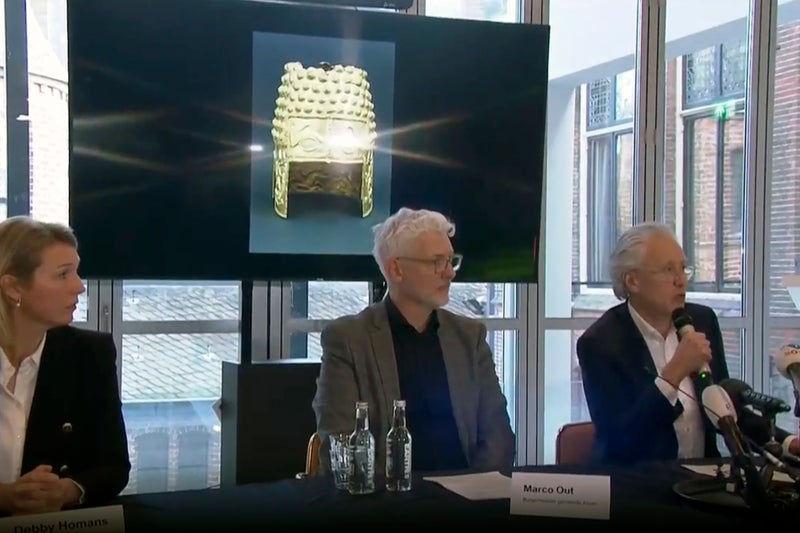Incredible haul of Bible-era British gold coins found in the Netherlands ‘were spoils of war from conquering Romans’
Incredible haul of Bible-era British gold coins found in the Netherlands ‘were spoils of war from conquering Romans’
Share:
A STASH of hundreds of Bible-era coins have been found by metal detectors in The Netherlands. The haul of over 400 early Roman-era coins was found near the city of Utrecht, about 30 miles south of Amsterdam. Researchers have discovered that 44 of the gold and silver coins bear the name of Celtic king Cunobeline, who ruled in southern Britain before the Roman conquest.
![[A large pile of ancient gold and silver coins.]](https://www.thesun.co.uk/wp-content/uploads/2025/01/buried-treasure-incredible-haul-bible-967149552.jpg?strip=all&w=960)
He ruled between AD 5 and AD 40 in the south-east of the country. There are also coins bearing the Roman emperor Claudius and the north African king Juba I who once ruled in what is now Algeria. The coins, which are on display at the Rijksmuseum van Oudheden in Leiden, date from AD 46.
![[Coin depicting a horse and the name Cunobelinus.]](https://www.thesun.co.uk/wp-content/uploads/2025/01/staters-decorated-name-celtic-king-967157958.jpg?strip=all&w=960)
The museum has revealed that the collection consists of a "unique combination of Roman and British coins" which has never before been found on the mainland of Europe. It is believed that the British coins were seized by Roman soldiers as spoils of war from their battles across the North Sea.
The amount of money retrieved is said to have been equivalent to about 11 years of wages for a regular Roman soldier. It is believed that the coins may have been given as a monetary gift given to soldiers to reward them for a successful expedition or campaign, the museum has said.
The two metal-detecting enthusiasts and amateur archaeologists, Gert-Jan Messelaar and Reinier Koelink, discovered the haul of 381 coins in a field in Bunnik. This area was the northern border of the Roman Empire, known as the Lower German Limes. The coins were in a shallow pit, less than 30cm deep and stored in a cloth or leather pouch.





















